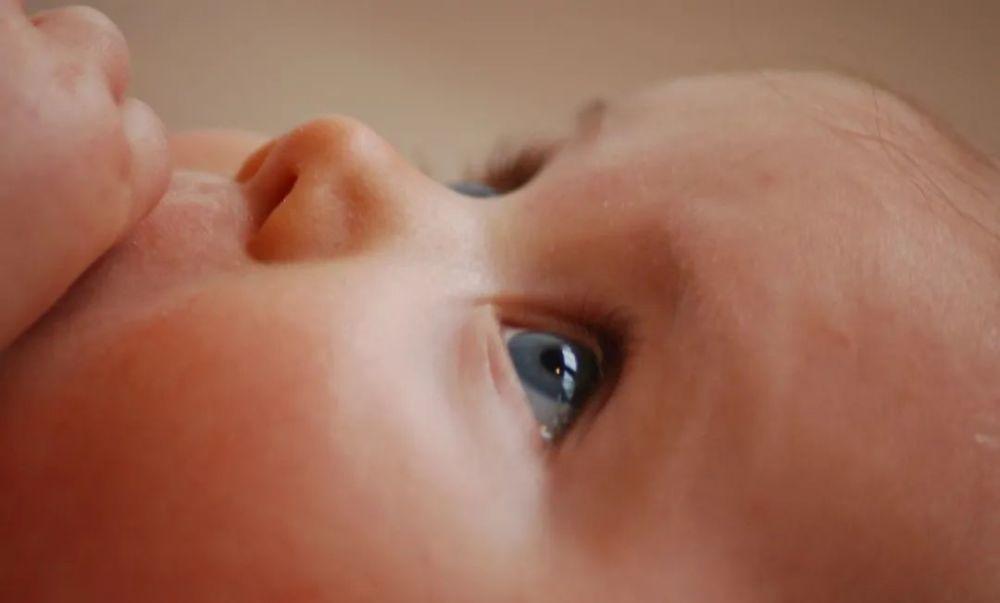Recently, there is a mother consultation: their own baby eczema repeatedly, has not been completely cured, the last 7 months to milk, often diarrhea, often cry at night, always sleep badly. Before the round little face, recently watched the day thinner and thinner, when the mother is sad to die!
After listening to this mother's words, quickly let her take the child to the hospital for examination to confirm whether the baby is allergic to milk protein.
In the past two years, there are more and more babies with milk protein allergy, and today I will talk to you about what is milk protein allergy and what are the symptoms of milk protein allergy.
"What is cow's milk protein allergy"
Milk protein allergy is the body's immune system has a clinical abnormal response to milk protein, we can visually understand that the guardians of our immune system regard the protein in milk as an "invading enemy" - harmful substances, so they started a defense war, fierce resistance, resulting in an allergic reaction in the baby.
"What are the symptoms of cow's milk protein allergy"
Cow's milk protein allergy is often misunderstood because it is "cunning", like a group of wolves in sheep's clothing, similar to or overlapping with some of the common symptoms of physical discomfort in babies.
So what symptoms does the baby have, and the mothers should be vigilant?

/ Skin Symptoms /
Usually, the baby's eczema is repeatedly old and bad, which is the first signal of milk protein allergy. Some babies also show facial edema, erythema on the face, urticaria after eating, etc., in short, there are data that about 70% of babies with milk protein allergy will have skin symptoms.
/ Intestinal Reactions /
The second more common is the intestinal response, which is about 60% of the time, which is also a symptom that is often overlooked. If your baby often has diarrhea for no reason, or if you have been constipated for several days, it may be a scourge of milk protein allergy. Some babies with milk protein allergies also have blood in the stool, which mothers usually find when changing the baby's diapers.
/ Respiratory Symptoms /
Some babies also have chronic cough, runny nose, asthma and other respiratory symptoms, and it is also the baby's body that is emitting abnormal signals. Severe babies will react all over the body, which means that the symptoms of milk protein allergy are already very obvious.
Generally, babies with milk protein allergies will have more than two symptoms, at this time, mothers should not hesitate to take the baby to see a doctor.
If the baby is diagnosed according to the clinical judgment standards of milk protein allergy, then it is necessary to stop ordinary formula milk and drink the corresponding special medical food under the guidance of the doctor.
"How should babies with milk protein allergies be fed?"
/ Mild Milk Protein /
Most babies with milk protein allergies are mild to moderate and can opt for deep hydrolyzed formulas. Deeply hydrolyzed formula is the processing of cow's milk proteins (casein and whey proteins) into small molecules that solve about 90% of cow's milk protein allergies. However, deep hydrolyzed formulas may still contain allergenic substances that may cause allergy-like symptoms.
/ Severe cow's milk protein allergy /
If your baby has been diagnosed with severe cow's milk protein allergy, a little milk protein will trigger systemic symptoms, such as: allergy or intolerance to deep hydrolyzed formula, you can consider using amino acid formula, the protein inside is provided by free amino acids, non-allergenic.
Let the baby completely away from allergens, quickly relieve the baby's allergy symptoms, is the first choice for babies with severe milk protein allergy
/People at high risk of cow's milk protein allergy /
If you are concerned or suspect that your baby is at high risk for cow's milk protein allergy, partially hydrolyzed formula can be selected.
Partially hydrolyzed formula can only reduce the allergenicity of macromolecular milk protein, so it is used for babies at high risk of milk protein allergy as a prevention. If the baby is diagnosed and then drinks this milk powder, it is not suitable.
Special medical food is not "magician swinging a magic wand" can be effective immediately, to achieve sufficient volume, it is generally recommended to adhere to the special formula feeding for 6 months, in order to help the baby successfully survive allergies and win the battle of desensitization.